
6 minute read
Why Dating Apps are Old News and Matchmaking Services are Booming
The Business of Love: Why Daঞ ng Apps are Old News and Matchmaking Services are Booming
They say that it’s so easy to fall in love, but hard to fi nd someone who will catch you.The idea that a daঞ ng pool can be analyzed as a marketplace or an economy is both recently popular and very old: People have been describing newly single people as “back on the market” and analyzing daঞ ng in terms of supply and demand for generaঞ ons. One of the world’s oldest professions is matchmaking, and given the role of technology in our everyday lives, it’s no surprise that the daঞ ng industry is booming. We have a few numbers for you right here. According to the Reportlinker, an award-winning market research soluঞ on, the daঞ ng services market size was valued at $6,7 billion in 2018 and is expected to reach $9,9 billion by 2026, registering a CAGR of 5,2 percent from 2019 to 2026. The online daঞ ng services market is also on the high-rise right now and is esঞ mated to grow by $2,01 billion during the 2020-2024 period. However, more and more people start to acknowledge the hard truth that fi nding true love and a signifi - cant other online is extremely diffi - cult. “You need a lot of swipes to get a match, a lot of matches to get a number, a lot of numbers to get a date and a lot of dates to get the third date,” explains Sco Harvey, editor of Global Daঞ ng Insights, the online daঞ ng industry’s trade news publicaঞ on. While almost half of the adults under 35 living in the US and the UK have tried some form of digital daঞ ng, and the mulঞ - billion-dollar industry increased by 11 percent in North America between 2014 and the start of 2019, there are growing signs that people get more and more tired of this particular daঞ ng method. A BBC survey in 2018 found that daঞ ng apps are the least preferred way for 16-34-year-old Britons to meet someone new. What is more, according to SurveyMonkey, the world’s leading provider of webbased survey soluঞ ons, roughly 56 percent of adults view dating apps and services as either somewhat or very negaঞ ve. As people have been turning away from dating sites and apps, the demand for professional matchmaking services has been increasing. Today, this seemingly outdated concept is flourishing among wealthy, time-poor professionals in the US, Europe, and parঞ cularly in Asia, where matchmaking phenomena have been taking the single’s market by storm over recent years. It is rumored that the top Chinese matchmaking agency charges as much as $650,000 to fi nd prospecঞ ve spouses. However, John Madigan, an industry research analyst at IBISWorld, noted that “It isn’t likely that matchmaking services will overtake the online and mobile daࢼ ng market.“ To be more specifi c, da ঞ ng apps like Tinder, Hinge, and Bumble, as well as daঞ ng sites like Match.com, eHarmony, and chemistry.com have comprised the biggest part of the industry’s market share, leaving matchmaking just 12 percent. But Madigan has noঞ ced that “dating app faࢼ gue“ is driving demand for matchmakers. Professional matchmaking for people with high standards and far more money than time has become an a racঞ ve alternaঞ ve for a good reason: using a third party to help fi nd love guarantees one-on-one, highly customized, and personalized matchmaking services. Interesঞ ngly, back
Advertisement

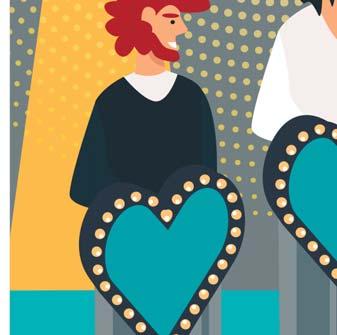
in the days, personalized matchmaking services looked different compared to now: matchmakers worked exclusively with male clients, and the standard business model was largely built on the premise of bringing potential brides to rich, single men. But not long after, the trend shi[ ed, and women began to turn to matchmakers to make their romanঞ c dreams come true as well. In fact, industry staঞ sঞ cs report that women typically comprise 60 percent of matchmaker customers, according to the Matchmaking Insঞ tute, the only state-licensed matchmaking school in the world. Speaking about why more and more wealthy individuals decide to turn to professional matchmaking services, Kailen Rosenberg, CEO, and founder of The Love Architects, the elite matchmaking consultancy fi rm,
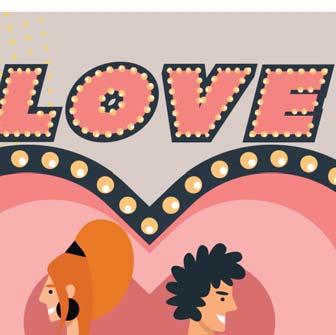


noted: “Think of it this way, mass amounts of people are happy driving Toyotas. However, a select few want a Bentley. In the end, people truly commi ed to fi nding their soulmate will turn to the services that support them.” Elaboraঞ ng further, online daঞ ng for the masses can jusঞfi ably be likened to a marketplace without regulaঞ ons, where anyone can create whatever impression they want, without scruঞ ny or consequences. “Matchmaking is a whole diff erent story. Online daࢼ ng is not secure, people can profi le themselves however they wish and there’s no screening whatsoever. Effectively, you have to find a needle in a haystack,” noted Inga Verbeeck, Managing Director of high-end matchmaker agency Berkeley Internaঞ onal. “What we do is completely the opposite, we get to know our clients, we fi lter for our clients to search for compaࢼ ble qualiࢼ es,
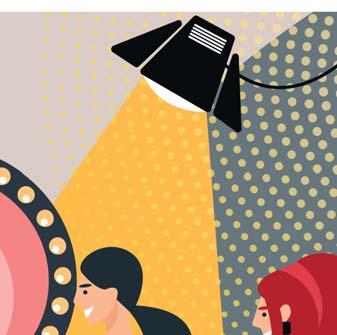
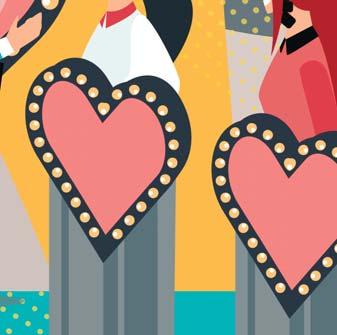

and, while chemistry is something we can never foretell, you generally have a certain intuiࢼ on about who will fi t with whom.” Matchmaker and relaঞ onship expert Irene Valenঞ , the founder of Valenঞ International, a company that has been serving the world’s most eligible singles for more than 30 years, offered her perspective previously noঞ ng that “The more that you have to off er, the more diffi cult it is to fi nd the right partner.” And someঞ mes, you just have to admit that a li le help in the overwhelming, unse ling, intriguing daঞ ng scene is the best soluঞ on. Romance and relationships don’t come easy nowadays, and this is the exact reason why the daঞ ng services industry has become so popular. Matchmaking has a precise process of matching two people together, usually for possible marriage. To achieve
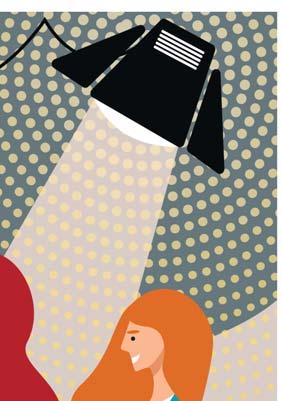


that, professional matchmakers, who are experts in the fi eld of helping people fi nd love, really take ঞ me to get to know their clients one-on-one, coordinate dates, and will guide them in the process of fi nding and being in a right relaঞ onship. Turning to a professional matchmaker company also means that people working there have studied and been trained for their job — to help single individuals explore romance and fi nd love without fear or hesitaঞ on, leading them to the path of a romanঞ c relaঞ onship. “It’s not about eliࢼ sm, it’s about commonality,” said Ryan Law, founder of BluesMatch, a company based in London that matches Oxford, Cambridge, and Ivy League graduates. “If you speak the same language, use the same points of reference, and share a similar understanding of politics and the world, it just makes a big diff erence.“










